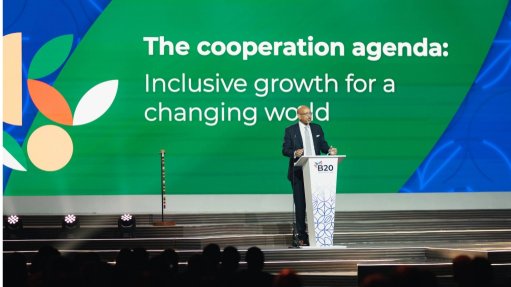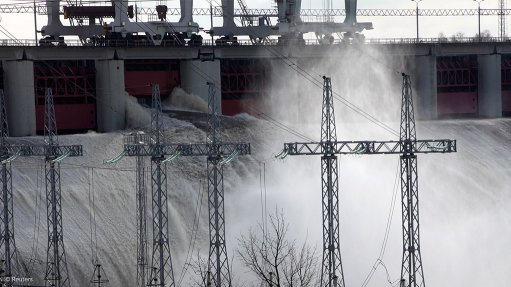Indian mining leases too small to be sustainable – FIMI
KOLKATA (miningweekly.com) – The size distribution of mining leases in India are so small that these neither sustainable, nor mined scientifically, according to Federation of Indian Mineral Industries (FIMI).
According to data provided in a FIMI report, on March 31, 2017, there were 4 128 mining leases of major minerals effective across the country, covering 354 908 ha. Of this, 72% of the mining leases were less than 50 ha. There were only four mining leases covering 500 ha or more and five leases covering 200 ha to 500 ha.
The small size distribution of mining leases in India is not only an impediment to sustainable the scientific mining, but also a major speed-breaker for the mining industry towards achieving its full potential of generating employment, FIMI said in a report.
Data cited by the miners’ body shows that employment elasticity of the Indian mining industry to be 0.52% against 1.13% for construction, 0.66% finance and real estate and 0.09% in manufacturing. Employment elasticity being the measure of percentage change in employment associated with 1% change in economic growth with low or negative employment elasticity indicating “jobless growth”.
Even though the mining industry hold the potential of generating 13 times more jobs than agriculture and six times more than manufacturing, ‘business as usual’ in the Indian mining industry will have 2.64-million jobs by 2022, against 3.32-million jobs at present, while a policy thrust ensuring higher growth in mining could lead to 4.82-million jobs by 2025, FIMI claims.
However, contrary to the potential of the industry, citing historical data, FIMI notes that the industry has actually experienced job losses over the past few years.
Citing the case of southern state of Karnataka, it said that there were 880 000 direct and indirect job losses in 2011 when 166 mines closed down in 2011. In western coastal state of Goa, 400 000 people lost their jobs when the renewal of 88 mining leases were set aside by the courts in 2018 and mining continues to be a limbo since then. Odisha state too has suffered direct and indirect job losses since huge penalties were imposed on miners, although FIMI does not specify the number of such job losses in this state.
Article Enquiry
Email Article
Save Article
Feedback
To advertise email advertising@creamermedia.co.za or click here
Comments
Press Office
Announcements
What's On
Subscribe to improve your user experience...
Option 1 (equivalent of R125 a month):
Receive a weekly copy of Creamer Media's Engineering News & Mining Weekly magazine
(print copy for those in South Africa and e-magazine for those outside of South Africa)
Receive daily email newsletters
Access to full search results
Access archive of magazine back copies
Access to Projects in Progress
Access to ONE Research Report of your choice in PDF format
Option 2 (equivalent of R375 a month):
All benefits from Option 1
PLUS
Access to Creamer Media's Research Channel Africa for ALL Research Reports, in PDF format, on various industrial and mining sectors
including Electricity; Water; Energy Transition; Hydrogen; Roads, Rail and Ports; Coal; Gold; Platinum; Battery Metals; etc.
Already a subscriber?
Forgotten your password?
Receive weekly copy of Creamer Media's Engineering News & Mining Weekly magazine (print copy for those in South Africa and e-magazine for those outside of South Africa)
➕
Recieve daily email newsletters
➕
Access to full search results
➕
Access archive of magazine back copies
➕
Access to Projects in Progress
➕
Access to ONE Research Report of your choice in PDF format
RESEARCH CHANNEL AFRICA
R4500 (equivalent of R375 a month)
SUBSCRIBEAll benefits from Option 1
➕
Access to Creamer Media's Research Channel Africa for ALL Research Reports on various industrial and mining sectors, in PDF format, including on:
Electricity
➕
Water
➕
Energy Transition
➕
Hydrogen
➕
Roads, Rail and Ports
➕
Coal
➕
Gold
➕
Platinum
➕
Battery Metals
➕
etc.
Receive all benefits from Option 1 or Option 2 delivered to numerous people at your company
➕
Multiple User names and Passwords for simultaneous log-ins
➕
Intranet integration access to all in your organisation


















